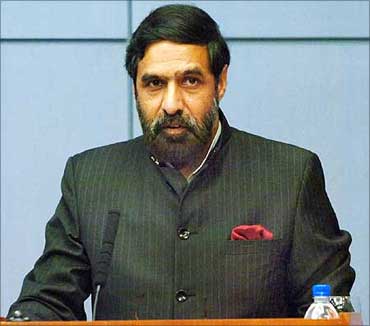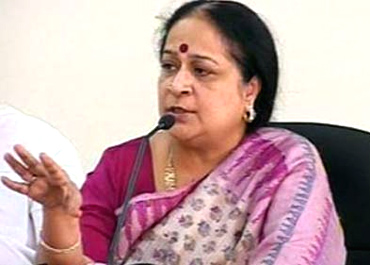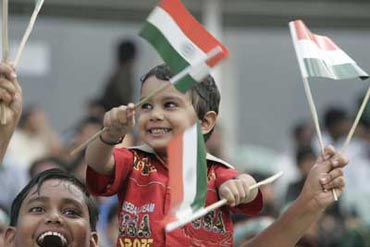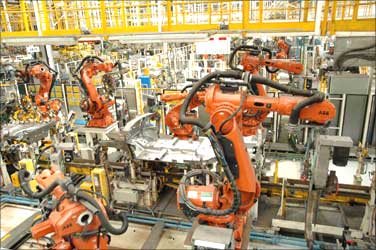Commerce and Industry Minister Anand Sharma on Wednesday met Environment Minister Jayanthi Natrajan to resolve the inter-ministerial differences over a proposal to ease environment laws in the manufacturing policy.
"I think we are in a position now to move forward for taking final view in the matter," Sharma said after the meeting.
According to an official statement, the two ministers have reached an understanding to fast-track the resolution of the issues so that the new proposed policy can be put up before the Cabinet as soon as possible.
However, earlier in the day secretary in the Department of Industrial Policy and Promotion R P Singh said that there were issues with both the environment and labour ministries.
. . .
This is what's holding up India's manufacturing policy
Image: Commerce and Industry Minister Anand Sharma.Photographs: Reuters
The draft policy, as reflected in the DIPP's discussion paper, has suggested setting up of National Manufacturing Investment Zones (NMIZs) -- big enclaves which could even subsume special economic zones -- should be given the flexibility to downsize labour.
Likewise, it recommended changes in environment norms that come in the way of investment.
"The labour department is citing ILO (International Labour Organisation) obligations... One serious difference of opinion I got is that everybody is talking about (their) sovereign functions, including environment (ministry)," Singh said in New Delhi at a Ficci function.
Singh regretted that there was 'lukewarm' response from the Labour Department on the policy.
. . .
This is what's holding up India's manufacturing policy
Image: Environment Minister Jayanthi Natarajan.Photographs: Rediff Archive
He asked the industry to talk directly with the labour department and labour unions on the issue.
Meanwhile, Singh also said the revenue department is veering round to the proposal for extending capital gains tax exemptions on equity investment in NMIZs.
The DIPP is of the view that the units in the NMIZs should get exemption from capital gains tax.
"Finally, the revenue department has seen merit in this and hopefully they are agreeing to this. Now, we are working modalities with them as to how to check the misuse of this," he said.
. . .
This is what's holding up India's manufacturing policy
Photographs: Reuters
Prime Minister Manmohan Singh had called a meeting of the key ministers last month in the backdrop of differences between the ministries of environment, labour and finance and the DIPP. At the meeting, the draft policy was given in-principle approval and a committee of secretaries, chaired by prime minister's principal secretary T K A Nair, was asked to work out a consensus.
According to the paper, the NMIZs would enjoy all the tax benefits that SEZs and EOUs have.
India aims to increase the share of the manufacturing sector, which contributes over 80 per cent to the country's overall industrial production, from 16-17 per cent to 25-26 per cent of the gross domestic product by 2025.
The two ministers also discussed the issue raised during the recent industry consultations by Sharma.
. . .
This is what's holding up India's manufacturing policy
Photographs: Reuters
The industry consultations threw up the issue of CSR initiatives being mandatory for environment clearances.
"Both the ministers agreed that the issue merits a fresh look," the statement said.
Sharma also raised the issue of delay caused by the sequential approval for industrial and environmental clearances and stressed the need for revisiting the procedure.
Last week, he met the industry leaders of CII and Ficci and had discussed various issues, including FDI policy and industry concerns related to environmental clearances.






article